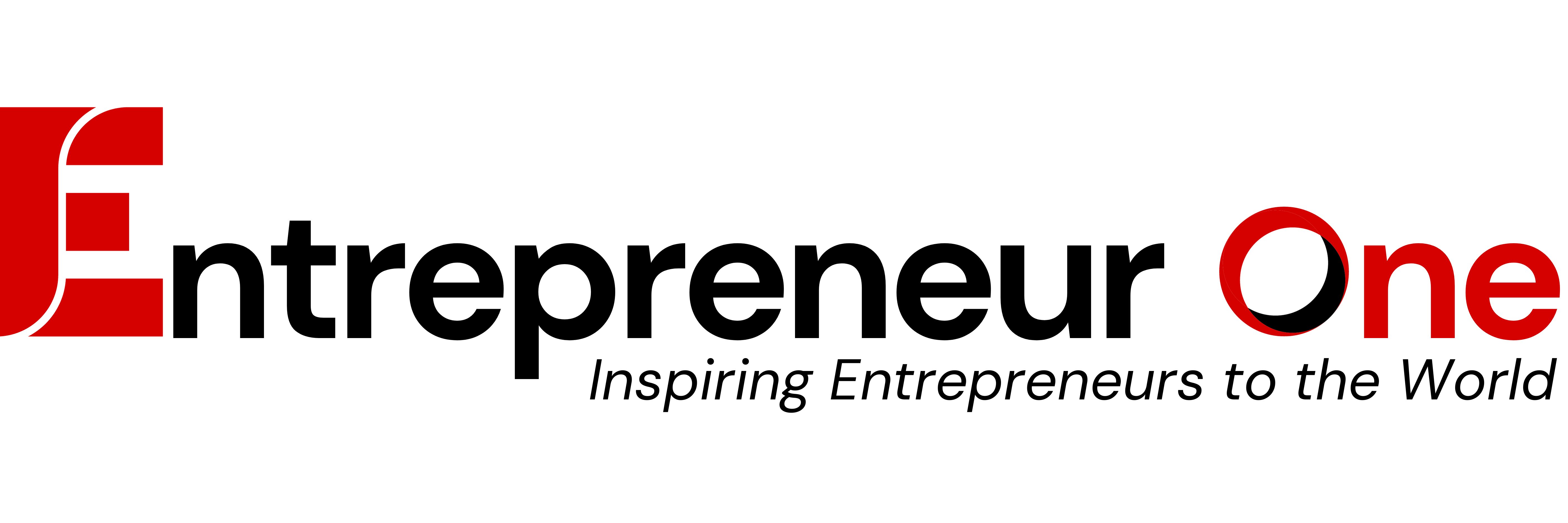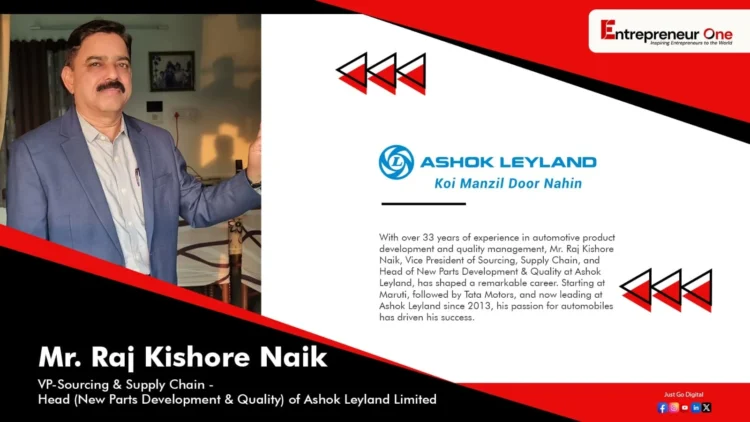With over 33 years of experience in automotive product development and quality management, Mr. Raj Kishore Naik, Vice President of Sourcing, Supply Chain, and Head of New Parts Development & Quality at Ashok Leyland, has shaped a remarkable career. Starting at Maruti, followed by Tata Motors, and now leading at Ashok Leyland since 2013, his passion for automobiles has driven his success. In this interview, Mr. Naik shares his journey, discusses the evolution of the automotive industry, and outlines Ashok Leyland’s strategic approach to sourcing, supply chain, and quality assurance.
INTRODUCTION AND BACKGROUND
Q. Can you provide us with a brief overview of your professional journey and how you came to your current role at Ashok Leyland?
After graduating from NIT, Rourkela in 1991, I started my career with India’s No.1 Car Manufacturer, Maruti where I started my career. Moved to Tata Motors in 2002 to work in Engg Research Ctr for Passenger Car projects. I joined the Hinduja Group in 2013 and continuing successfully till now.It’s a journey of 33 years of rich & extensive experience in Product Design and Development, Manufacturing Quality, and Sourcing & Supplier Quality Assurance.Presently leading New Parts Development for MHCV, LCV, and PSB and Parts Quality Assurance.
Q. What motivated you to pursue a career in the automotive industry, particularly in sourcing, supply chain, new parts development, and quality management?
Automobile is my passion since childhood. I have grown up in a family where every member is an Auto Expert, and this always keeps me motivated.I am enjoying my responsibility since it calls for a pivotal role in the NPD process by interacting with almost all departments of Ashok Leyland like PMG/PMO/PD/MFG Plants/ SQA/Service and all Suppliers to make sure that the right Parts are getting developed at right Time at the right Cost and at right Quality with our relevant suppliers.
ROLES AND RESPONSIBILITIES
Q. As Vice President-Sourcing & Supply Chain, and Head of New Parts Development & Quality, what are the key responsibilities and challenges that come with your role?
It’s my good fortune to Lead a Team of 100-plus Extremely Talented Engineers to develop thousands of New Parts. In various leading positions, I got the opportunity to guide the team in New Part Development for the Highest Quality Standard. I always motivate my team on Quality confirmation activities related to Supplier parts in adherence to Quality systems starting from Scratch to the Start of Production till the life of parts.Ensure Supplier Quality Assurance system is in place & enhance supplier capability to ensure Zero Defect supplies to AL for all parts well before SOP.To play a vital role in NPQ process by interacting with all internal stake holders of AL and all Suppliers to make sure that Right parts are getting developed at Right time with relevant suppliers.Assurance of Robust Manufacturing Process at Supplier end to achieve sustainable Quality Targets. Our focus will always be for continual improvements in their Manufacturing Process with increase in volume and reduction in cost.
Q. How do you ensure the seamless integration of sourcing, supply chain, and quality aspects for the development of new parts at Ashok Leyland?
We follow daily work management review with team members by conducting daily Morning meeting review at the scheduled time and thereby addressing the daily routine issues by providing necessary guidance & inputs for solutions and the way forward. Also we have scheduled weekly and Monthly reviews with the relevant teams for seamless communication to ensure every part development timeline is adhered.
INDUSTRY INSIGHTS
Q. How have you witnessed the automotive industry evolve in terms of sourcing and supply chain practices over the years?
INDUSTRY 4.0 – The Last stop on the road to the fully automated smart factory. (Advanced Process controls and Visualization applications are key components of this strategy and ultimately will become the enabler for fully automated Factories.Sourcing and Supply Chain evolved in multi folds, Predictive supply chain, Risk assessment & mitigation plan, Environmental analysis, Competition balancing, and Best practice bench markings were meticulously followed and converted to Key matrices.New parts development focus, our theme is Right part @ Right time with Right Quality @ Right investment. Quality is no more a special requirement in New parts development, it’s an inbuilt hygiene requirement. We are moving from Quality Assurance to Assurance by Process Capability and Sustenance by process monitoring and Continual improvements.The automotive industry has undergone significant changes in its sourcing and supply chain practices over the years, driven by various factors such as Globalization, Technology Advancements, and shifts in consumer demand. Here are some notable ways in which the industry has evolved: Globalization and Outsourcing: Global Supply Chains: The industry has become increasingly globalized, with automakers sourcing parts and components from all over the world. This has led to complex supply chains that span continents.Just-in-Time (JIT) Manufacturing: Lean Principles: The adoption of lean manufacturing principles, such as Just-in-Time (JIT) production, has been widespread. This means parts are delivered to the production line exactly when they are needed, reducing inventory space/costs and improving efficiency.Advanced Technologies: Digitalization: The use of digital technologies like IoT (Internet of Things), AI (Artificial Intelligence), and Big Data analytics has transformed supply chain management. This includes real-time tracking of parts, predictive maintenance, and demand forecasting.3D Printing: The emergence of 3D printing has the potential to revolutionize the supply chain by enabling on-demand production of parts and reducing part development time. It is specially implemented for quick proto parts development.Sustainability and Responsiveness: Environmental Concerns: The industry is increasingly focused on sustainability, leading to the adoption of eco-friendly Materials and Manufacturing Processes.Supply Chain Resilience: Recent global events, such as the COVID-19 pandemic, have highlighted the importance of supply chain resilience. Automakers are now more focused on building resilient and flexible supply chains that can quickly adapt to disruptions.Relationship with Suppliers: Closer Collaboration: Automakers are now collaborating more closely with their suppliers, forming strategic partnerships rather than traditional buyer-seller relationships. This helps in sharing risks, costs, and innovations.
Q. What are some of the recent trends and innovations in new parts development and quality management that you find particularly interesting or promising?
Innovation and Technology plays a major role in bringing transparent communications, and clear process understanding. Standardizing the parts design for a better supply chain. AL, with masterpiece innovation, has worked on alternative fuel technology such as Hydrogen, CNG, Battery vehicles, and Fuel cell powered vehicles – and we are future ready.Major Junk of Non-Value-added activities is being removed from the processes to make the Manufacturing Process lean and enable us to reach our goals faster and more effectively.All the New part development plans & approvals have been digitalized and Critical Quality parameters are monitored by Supplier partners and OEMs via online SPC monitoring, Low-cost automation, and Poka Yokes are also the areas in which the innovations and technology play as a major role for ensuring infusing Quality of the products with a reduced lead time for development.
INNOVATION AND TECHNOLOGY:
Q. How does Ashok Leyland leverage innovation and technology in the sourcing and supply chain processes, as well as in the development of new parts?
We have recently invested our major time in Electric Vehicles (EVs) and New Materials. EV Revolution: The shift towards electric vehicles has influenced sourcing practices, with automakers sourcing new types of batteries, motors, and materials for EV production. Lightweight Materials: There is a growing trend towards lightweight materials such as carbon fiber and aluminum, which require new sourcing strategies.
COLLABORATION AND PARTNERSHIPS
Q. Can you share some examples of successful collaborations or partnerships that have contributed to the success of Ashok Leyland’s supply chain and quality initiatives?
We believe Customer centricity is the prime, to meet the customer delight – We clearly understand that the Supplier relationship & capability improvement are key focus area to reach our vision.We have multiple supplier motivational / capability improvement programs and trainings such as Supplier Samrat, and Cluster approach. Lean Six sigma training to supplier partners.We always treat suppliers as our valuable partners and their improvements is our victory.
QUALITY MANAGEMENT
Q. As the Head of Quality, how do you ensure the highest standards in the quality of automotive parts produced by Ashok Leyland?
I urge my Team few Steps given below,
Supplier Quality Management:
Supplier Audits: Conduct regular audits of suppliers to assess their quality management systems, production processes, and capabilities.Supplier Certification: Work with suppliers to achieve certifications such as ISO/TS 16949 for automotive quality management.Supplier Development: Collaborate with suppliers to improve their processes, provide training, and ensure they meet the required quality standards.
Process Controls and Continuous Improvement:
Statistical Process Control (SPC): Implement SPC techniques to monitor and control production processes, ensuring they remain within defined quality parameters.Root Cause Analysis: Utilize tools like Six Sigma, 8D, or similar methodologies to identify and address the root causes of quality issues.Kaizen and Lean Practices: Encourage a culture of continuous improvement throughout the organization, focusing on waste reduction and efficiency gains.
Robust Testing and Inspection:
In-Process Inspections: Conduct inspections at various stages of production to catch defects early and prevent them from progressing further thus reducing the waste of money and lead time.Final Product Testing: Perform rigorous testing of finished parts using techniques such as destructive and non-destructive testing to ensure they meet desired specifications.
Employee Training and Empowerment:
Quality Training Programs: Provide comprehensive training to employees on Quality Standards, Processes, and Tools.Empowerment: Encourage employees to take ownership of Quality by involving them in problem-solving, decision-making, and continuous improvement initiatives.
Customer Feedback and Satisfaction:
Customer Surveys: Regularly gather feedback from customers to understand their expectations and perceptions of product quality.Customer Complaint Handling: Establish effective processes for handling customer complaints, conducting thorough investigations, and implementing corrective actions.Advanced Testing Equipment: Invest in advanced testing equipment and technologies to ensure accurate and reliable quality assessments.Collaboration with Across Departments:Cross-Functional Teams: Foster collaboration between Quality, Production, Engineering, and other departments to ensure a holistic approach to Quality Management.
Performance Metrics and KPIs:
Key Performance Indicators (KPIs): Define and track relevant quality metrics such as defect rates, PPAP effectiveness and customer complaints to monitor performance and drive improvements.By implementing these strategies, we have set up a robust Quality management system that ensures the highest standards in our product, ultimately leading to Customer Satisfaction, Brand reputation, and Operational excellence.
Q. Can you share some insights into the quality control measures and processes implemented to maintain excellence?
Quality excellence is a continuous journey and have no limits. We strongly recommend IATF 16949 to our supplier partners. Being a TQM company we emphasis on continuous improvement with process controls.We too take some critical initiatives such as Q max drive to improve our supplier capabilities in which we collaborate, Deep dive, support to implement the improvements to enable ZERO defect Mentality.Our Mission wrt supplier process, No Pass – No Make – No receipt – Means No pass of defective parts to customers by ensuring no defective parts being made and no defective parts being received from their sub suppliers – To enable ZERO defect approach.
PERSONAL REFLECTIONS
Q. What motivates you in your role, and how do you stay inspired amidst the demands of the industry?
Stay updated with the latest trends, technologies, and developments in the automotive sector. Engage with professionals in the field through networking events, industry associations, and online forums. Sharing ideas and experiences with peers can provide fresh perspectives. I embrace challenges as opportunities for growth. Tackling complex problems and overcoming obstacles keeps me motivated. I try to learn from the successes and experiences of inspiring leaders in the automotive industry. Their stories and strategies offer me valuable lessons and motivation. Maintaining a healthy Work-Life balance is prime to me and I feel it prevents burnout and maintain enthusiasm in my job. Maintain a curious mindset and approach each day with a sense of eagerness to learn something new.
CAREER ADVICE
Q. What advice would you give to professionals aspiring to grow in the fields of sourcing, supply chain, and quality management within the automotive industry?
Develop a deep understanding of the automotive industry, including its key players, Trends, Challenges, and Regulations. Stay updated with industry updates and developments.Pursue higher education in core subjects and certifications such as a degree in supply chain management, logistics, engineering, or Quality management. Certifications like Six Sigma can also be beneficial. Seek internships, co-op programs, or entry-level positions within automotive companies to gain practical experience in sourcing, supply chain, or quality roles.Take advantage of online courses, workshops, and seminars to Stay updated with the latest trends, technologies, and best practices in sourcing, supply chain, and quality management. Collaborate with professionals from other departments such as Engineering, Manufacturing, and Sales. Understanding how different functions work together will broaden your perspective.Showcase your leadership potential by taking on additional responsibilities, leading cross-functional teams, and driving process improvements.Above all I strongly feel there is no alternative to hard work and dedication. I would request all my youngsters to never follow any short-cut route for success.
CLOSING THOUGHTS
Q. Is there anything else you would like to share or highlight regarding your role or Ashok Leyland’s approach to sourcing, supply chain, and quality management?
It’s a pleasant experience handling multiple projects at the same time and completing Quality Assurance activities within stipulated timelines.AL is a place where everybody gets lots of opportunity to learn and learn fast too. Since the projects are varied in nature, one gets an excellent opportunity to experience multiple prospects.We give topmost priority for the Quality of our Products. We have very strong Corporate Values and Value the customers and Business Partners.














